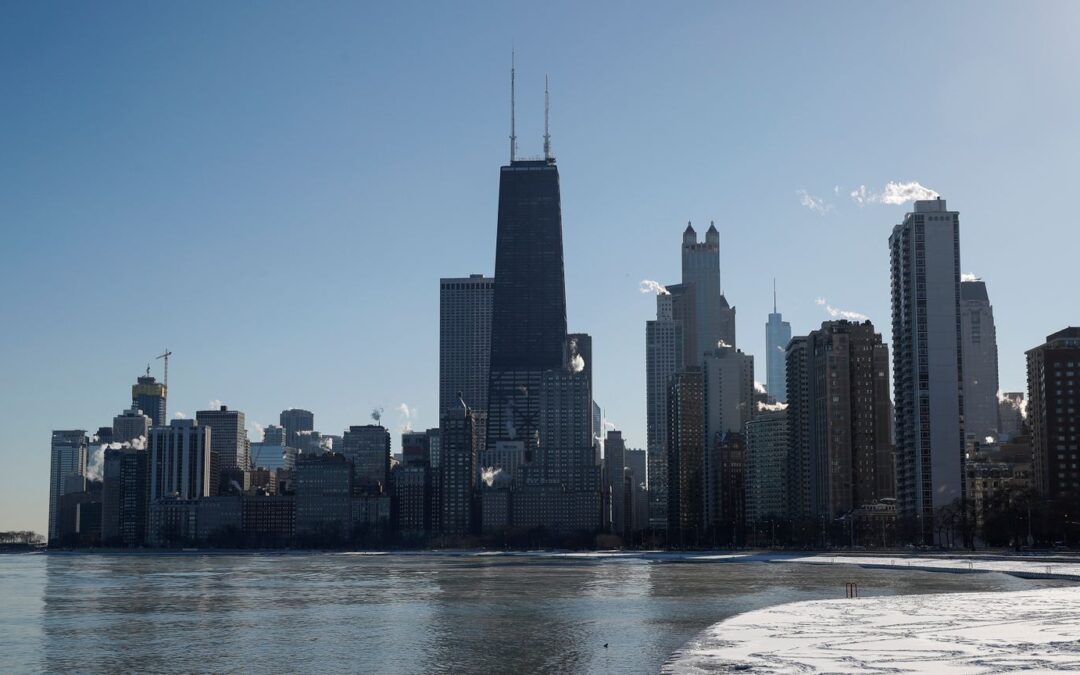Article Source: Utility Dive
Article Link: https://www.utilitydive.com/news/chicago-updated-building-energy-code-iecc-decarbonization/632978/
Photo Credit: Kamil Krzaczynski via Getty Images
- The Chicago City Council last week passed the 2022 Chicago Energy Transformation Code, which requires that new buildings are constructed in alignment with stronger energy efficiency and electrification standards to advance decarbonization. Most changes will apply to new building permit applications starting Nov. 1.
- Some portions of the new code are based on the 2021 International Energy Conservation Code, while others are Chicago-specific revisions.
- Changes include requirements related to energy-efficient lighting; designing certain commercial building roofs to support future solar panel installations; constructing residential buildings with infrastructure that enables a future switch to electric-powered appliances; and incentives for smart HVAC and water appliances that integrate with the power grid to reduce demand during peak use.
The energy code updates align with decarbonization goals in Chicago’s climate action plan, which aims to reduce carbon emissions 62% below 2017 levels by 2040. Buildings produce 69% of the city’s emissions.
The city recently committed to purchasing 100% renewable energy for all city-owned facilities by 2025. And in 2019, Chicago launched a system to rate large buildings for energy efficiency and make the information public. The system was based on the energy benchmarking reports that buildings are required to submit annually.
No national building energy code exists in the U.S., but states and cities widely use the IECC as a model. It is revised every three years to include new technologies and best practices to ensure new buildings meet modern energy-efficiency expectations. The 2021 version is the most recent and includes significant changes, according to Michael Waite, senior manager in the buildings programs at the American Council for an Energy-Efficient Economy.
“Why this is particularly important for the residential buildings is that between 2012 and 2018 there weren’t really major improvements in the IECC, but from 2018 to 2021 there was a big improvement,” he said. “Energy codes are really important.”
The U.S. Department of Energy reviewed the 2021 IECC and determined that residential buildings meeting this code — compared with buildings meeting the 2018 code — would cut energy consumption by around 9%. Beginning next April, all new federal government buildings and retrofits must meet the 2021 IECC standards. The federal government has more than 350,000 buildings across the country, making it the largest building owner and manager in the U.S.
Governments can adopt certain portions of the code and omit or alter others to suit local needs, as Chicago did. In November 2020, Kansas City, Missouri, became the first city in the nation to adopt the 2021 version, with others following, including Austin, Texas, and Louisville, Colorado. Chicago said it is among the first cities to adopt and exceed the 2021 IECC, which puts it “among the leaders in requirements for energy-efficient new construction” and especially among cities that are comparably large, Waite said.
Appliances are key targets for household emissions reductions. Chicago households primarily use natural gas for heating. U.S. Energy Information Administration data show that nearly 80% of Illinois households use natural gas-powered heating systems, and only about 15% rely on electric heat. The residential sector used about 35% of the natural gas delivered to consumers throughout the state, the largest share of any sector, followed by the industrial sector at 24%.
“We need to be using efficient, electric technologies in place of fossil fuels for [space] heating, water heating and cooking appliances in order to decarbonize homes and buildings,” he said. “The new Chicago energy code doesn’t require this, but it does have requirements that are set up to get buildings there.”
For example, the code requires builders to install wiring for future electric appliances even if they’re currently outfitting the home with fossil fuel-powered appliances. Doing that kind of work up front rather than as a retrofit down the road is more cost-effective, Waite said.
After implementing standards and regulations for new construction, cities often tackle the decarbonization of existing buildings, Waite said. That’s another area of opportunity for Chicago’s future energy policy.
Correction: A previous version of this story erred in identifying one of the communities that adopted the 2021 International Energy Conservation Code. That community is Louisville, Colorado.

